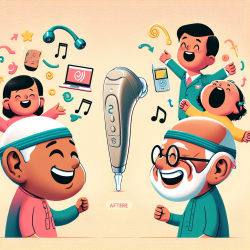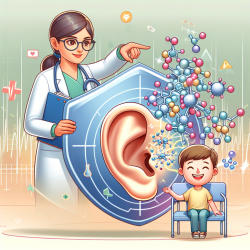Understanding CoQ10 and Its Role in Pediatric Hearing Loss
Primary coenzyme Q10 (CoQ10) deficiency, particularly COQ10D6, is a rare genetic disorder that can lead to sensorineural hearing loss (SNHL) in children. This condition is caused by biallelic COQ6 variants, which affect CoQ10 biosynthesis, leading to mitochondrial dysfunction. The recent study titled Effects of CoQ10 Replacement Therapy on the Audiological Characteristics of Pediatric Patients with COQ6 Variants explores the potential benefits of CoQ10 supplementation in managing SNHL in affected children.
Key Findings of the Study
The study, conducted on 12 children from 11 unrelated Korean families, found that CoQ10 replacement therapy can potentially limit and even improve hearing loss in children with COQ10D6. The response rate was 42.9%, indicating that nearly half of the participants showed no further hearing loss or improvement. Notably, the benefits of CoQ10 therapy appeared to be genotype-specific, suggesting a correlation between specific genetic variants and therapeutic outcomes.
Implications for Practitioners
For practitioners working with children experiencing SNHL due to COQ6 variants, this study highlights the importance of personalized, genetically tailored treatment approaches. Here are some practical steps practitioners can take based on the study's findings:
- Consider Genetic Testing: Identifying the specific COQ6 variants in patients can help predict their response to CoQ10 therapy and tailor treatment plans accordingly.
- Monitor Audiological Changes: Regular audiological assessments are crucial for tracking the progression of hearing loss and evaluating the effectiveness of CoQ10 therapy.
- Explore Cochlear Implantation: For patients who do not respond to CoQ10 therapy, cochlear implantation may offer significant improvements in speech perception and auditory performance.
Encouraging Further Research
While the study provides promising insights, further research is needed to fully understand the genotype–phenotype correlations and the long-term effects of CoQ10 therapy on hearing loss. Practitioners are encouraged to contribute to ongoing research efforts by documenting clinical outcomes and sharing data with the broader scientific community.
Conclusion
The study on CoQ10 replacement therapy offers valuable insights into managing SNHL in children with COQ6 variants. By adopting data-driven, personalized treatment approaches, practitioners can improve outcomes for affected children, paving the way for better audiological rehabilitation.
To read the original research paper, please follow this link: Effects of CoQ10 Replacement Therapy on the Audiological Characteristics of Pediatric Patients with COQ6 Variants.










